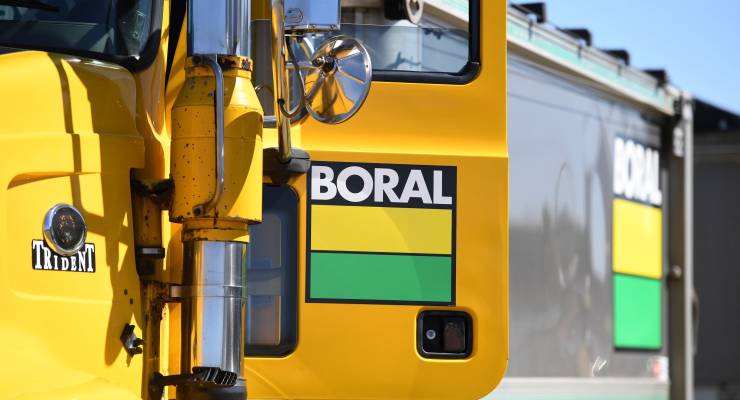
Profiteering by firms has nothing to do with inflation, outgoing Reserve Bank governor Philip Lowe insists — if you don’t count energy (“I think it’s appropriate to treat them differently”) and specific firms in “specific areas of the economy”.
As we’ve detailed before, those “specific areas of the economy” cover a large chunk of ordinary household budgets.
But what about Lowe’s argument that you just need to ignore inflationary profiteering in energy? Obviously higher energy prices mean higher prices for households and business — massively higher, as we’ve seen over the past year.
But let’s agree with Lowe about soaring energy costs that “it’s appropriate to treat them differently”. How about for business?
Late last week construction supply giant Boral — now controlled 69% by Kerry Stokes’ Seven Group Holdings — reported its results for 2022-23. It made it clear in briefings that cost pressures would linger for the next 12 to 18 months, which Boral would pass on to its customers, but it said the increases wouldn’t be as steep as last financial year.
“There will be price increases because cost will increase. I just want to make sure that’s very clear,” CEO Vik Bansal told analysts and media at a briefing on Thursday. “I’m not saying the price is going to remain steady. All I’m saying is the rate of increase will slow down.”
What cost increases?
Given that Lowe and the RBA and a slew of journalists and commentators at The Australian Financial Review, are obsessed with wage-price spirals, did Bansal mean labour costs? No. That was the smallest rise in Boral’s costs: just 7%. And while that was in excess of inflation (6%) and ahead of rises in 2021 and 2022, the graphic provided by Boral shows 2023’s rise was well short of the 2019 increase (pre-pandemic).
No, the cost increases that Boral has been and will continue to pass on are: raw material costs, up 16%; cargo and freight costs, up 19% (higher diesel prices); energy costs up 21%.
To recover these costs, Boral lifted bulk cement prices 8%, quarry prices 11%, recycling prices 17%, concrete 12%, and asphalt prices 6%. These feed into every infrastructure project and every building construction site in the country, from giant commercial properties to the humblest household reno.
With energy driving two of Boral’s three big cost increases, and translating directly into higher prices in construction — a persistent area of high, albeit moderating, inflation in the CPI — Lowe’s argument that energy is somehow special and should be excluded from the profit-inflation spiral debate seems at odds with what’s happening in the Australian economy as other businesses like Boral pass on the energy profit-driven cost increases.
Boral’s not alone — its price rises were revealed several days after cement board maker James Hardie revealed it had boosted prices in Australia by 12% in the June quarter.
Hardie didn’t mention higher wages as a problem either. And neither company mentioned the “P” word, productivity, which is the subject on the beak of every pet shop galah economist across the country. The new Business Council CEO Bran Black — a former Liberal staffer — has flagged productivity as his key area of interest (and, naturally, productivity growth would be achieved by slashing wages and cutting company tax, as per the business “economic reform” template).
But perhaps Black should instead have a word with BCA energy sector members such as AGL, Ampol, BP, Origin, Woodside, Santos and Shell, all of whom are enjoying huge profits that are feeding directly into inflation. Whether we “treat them differently” or not.









The greed of our billionaires and wannabes says we only want more profits. To hell with anything else. Climate be damned. Economy be damned. Give me profit. Obscene profit if possible. But dont talk about taxes. That upsets.
All orthodox inputs are still driving mining, transport, electricity, finance, investment, reserve funds e g, hedged, super, bonds, etc. Only world agreement to slow, downsize, alter, economize, slash, change, will see us get climate better if not right. Fat chance for our planet…
It is an absurdity that we don’t actually own any of those fossil fuel companies so there is no way of keeping prices down for all the other businesses and people in Australia by competing with them and drawing a reasonable line/ working with the RBA to help control inflation and to break the deadlock on transition .
Philip Lowe laments that he would prefer government made a little more effort, I think he means it .but there is no oxygen for
any conversation because of the risk to profit for the ff industry., which he would also of course know.
We don’t have politicians capable of competing with the ff industry, this should be national party territory.
Black B(r)AN?
Gather ye rosebuds while ye may.